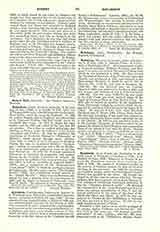
William Callyhan Robinson
Jurist and educator, b. July 26, 1834, at Norwich, Conn.; d. Nov. 6, 1911

Robinson, WILLIAM CALLYHAN, jurist and educator, b. July 26, 1834, at Norwich, Conn.; d. November 6, 1911, at Washington, D.C. After preparatory studies at Norwich Academy, Williston Seminary, and Wesleyan University, he entered Dartmouth College from which he was graduated in 1854. He then entered the Theological Seminary of the Protestant Episcopal Church, was graduated in 1857, and ordained to the Episcopalian Ministry, in which he served first at Pittston, Pa. (1857-8), and then at Scranton, Pa. (1859-62). He was received into the Catholic Church in 1863, was admitted to the Bar in 1864, and was lecturer and professor in law in Yale University (1869-95). For two years (1869-71) he was judge of the City Court and later (1874-6) judge of the Court of Common Pleas at New Haven, Conn. In 1874 also he served as member of the Legislature. From Dartmouth College he received (1879) the degree LL.D., and from Yale University the degree M.A. (1881). He married, July 2, 1857, Anna Elizabeth Haviland and, March 31, 1891, Ultima Marie Smith. His thorough knowledge of law made him eminent as a teacher and enabled him to render important service to the Church. In 1895 he was appointed professor in the Catholic University of America, where he organized the School of Social Sciences and remained as Dean of the School of Law until his death. Besides articles contributed to various periodicals, he wrote: “Life of E. B. Kelly” (1855); “Notes of Elementary Law” (1876); “Elementary Law” (Boston, 1876); “Clavis Rerum” (1883); “Law of Patents” (3 vols., Boston, 1890); “Forensic Oratory” (Boston, 1893); “Elements of American Jurisprudence” (Boston, 1900).
E. A. PACE

